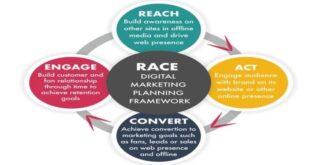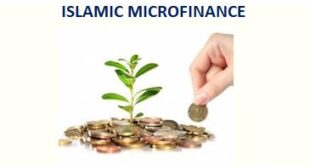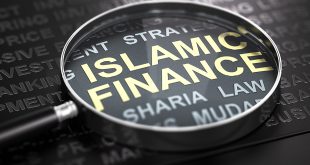This is the first of the yHub career series. The series will be looking at different career opportunities for the Muslim Youth. We begin by drawing our lens at the field of Islamic Banking & Finance; with our first guest an Islamic Banker, Trainer and Author. It is a great pleasure to have Br. Muath Mubarak share his expertise and knowledge with our audience. He talks about how his conscience and natural inclination led him into Islamic Banking & finance. He shares his sources of inspiration; important ingredients required to get into & excel in the professional arena of ‘Islamic Banking & Finance’. He also talks about how to seek opportunities and live a more purposeful and financially informed life through having the correct knowledge of Islamic Finance.
*****
Muath Mubarak is a qualified Chartered Management Accountant by profession. He is currently the Head of Finance & Corporate Strategy of First Global Group and a senior lecturer at First Global Academy (FGA). Muath lectures on various topics on Islamic Banking & Finance for students following the Islamic Finance Qualification (IFQ) course (offered by CISI – UK), i-Banker, CIMA IF, PGDIBI and Diploma in Islamic Banking & Finance courses in Sri Lanka, Qatar & UAE. He is also an external subject matter expert on Islamic Banking & Finance for Bankers’ Academy – USA. Since October 2012, he has been serving as an Islamic Finance Community member for Thomson Reuters. His articles have been published by various international journals.
Read on
1. Tell us, how did you get into the Islamic Banking & Finance industry?
As a teenager, I would browse through many educational programs and professional courses to choose my dream career from. I was later directed by a family friend to look at a UK based Chartered Management Accountancy qualification. This was a dream come true for me, as I saw many young people on the same program.
After spending some time on the program, something started to bug me. This led me to question whether I had chosen the right career or not. My concerns stemmed from realising that my studies were primarily centred around interest (riba) related concepts.
I felt dispirited thinking of the warning of Prophet Muhammad (saw) regarding those who engage in Riba (interest / usury) – as being cursed. When I brought up the issue with my ever loving Dad [a Sharia scholar], he introduced me to the Islamic Finance industry, offering me books and materials to start learning by myself. This was my first step in the journey towards the Islamic Finance industry in 2006/2007.
2. What has the experience been like – personally & professionally?
Alhamdulillah, within a very short period I was able to rise from nothing to being recognised as the ‘Rising Islamic Finance Personality’ of the year by UTO EduConsult in Sri Lanka (in 2013). This was a very remarkable event in my life. Personally, I was nothing and then I got recognised – All praise belongs to the Creator alone.
Beyond this recognition, a career in Islamic finance allows to me to live a highly conscious life with regards to my finances and transactions. I have learned a lot and I am still learning; In Sha Allah – till the last breath).
Secondly, Islamic Finance nurtured me throughout my professional career to get exposure in various roles such as an Islamic Banker, Author and Trainer for the subject matter. Being a banker – I strive to practice what I preach as a lecturer. So, only a decade ago I was fresh out of college, but over a short period of time I have learned a lot and this has fuelled my professional career.
3. What makes the Islamic finance system different from conventional non- Islamic finance systems? What is the ‘Big Deal’?
There are many differences. And the first that comes to mind is regarding Riba (interest /usury). While the Islamic banks are based on an interest – free system, the conventional banks use an interest based system. Regarding interest, I would like to quote Albert Einstein who said;
‘Interest is the eighth wonder of the world, those who understand – will earn it, and those who do not – will pay for it’.
Secondly, I would like to quote Professor Margret Kennedy who proved in her book ‘Occupy Money’ that for whatever purchases we make, we are paying an interest of between 35 – 40%. This is an alarming rate and trend in the world.
We also know that there are many Qur’an verses strongly warning believers against engaging in Riba. The orders from Allah (swt) are clear & firm and with strong consequences (verses in Surah Baqarah; Chapter 2). Similarly, there are more than forty Hadiths relating to Riba. So the issue of Riba is the main big deal. But apart from this, there are other differences.
An Islamic bank cannot involve itself with activities such as gambling, speculation, black market activities, pornography/ adult entertainments, night clubs & casinos. In the same way, arms production for mass destruction, alcoholic products, drugs and many more are off limits. Anything which is considered Haram (forbidden) in Islam [or cause harm to the society] – cannot be endorsed by an Islamic bank and they cannot get involved in any form of transaction [either financing, being a guarantor, facilitator, act as an agent or any other role] relating to the Haram. Conventional banks have no such principles or restrictions and they can get involved in any nature of transactions they wish.
Many say that Islamic banking is an ‘alternative financial system’ for the world as it has the richness of ethical, moral and social dimensions unlike the conventional banks which tend to make money at any cost and have the power of creating artificial money and credit bubbles in the economy. I strongly believe and say that Islamic Finance is the ‘Ultimate financial system’ as Islam is the ultimate way of life; leading to success in both worlds.
4. Does it take a lot to get into this field?
The main thing you require to get into this industry is “Passion” – you must fall in love with the ‘Islamic Finance’ concept to take an initiative. Then, you will find your own way of reaching the pinnacle of this industry whilst protecting the fabric (financial & non-financial needs) of your own self, family and society.
Secondly, you will require the basic knowledge of how the Islamic banking system is different and how it works as a foundation to kick start your enduring journey. Nowadays, education has been made very easy, instant and at very minimal cost via the internet. As you aspire to become the high performing professional or corporate warrior, you must build up your muscles known as “skills” to differentiate yourself.
5. What sort of educational decisions do young people need to make to get into this field; will they need to study statistics for example?
In my humble view, having an Islamic finance education is a must on every Muslim because we will all be asked five questions in the hereafter concerning; how we lived our life; how we spent our youth; how we earned our money; how we spent it; and what we did with our knowledge.
So, it becomes mandatory (not a choice) for Muslims (male & female) to know how to earn and spend their money . Let’s simply refer to it here as Islamic finance. The basis of Islamic Finance is found primarily in the Quran & Hadith and the secondary sources provide knowledge on financial matters.
It is noteworthy that we have been warned by Prophet Muhammad (saw), that there will be a time when none will be bothered about how they earn money – whether in legal or illegal ways.
It is highly welcome that in certain US based Islamic international schools, they have incorporated Islamic Finance into their curriculum. So the students learn about what Islam says regarding Riba. This shift is happening worldwide, in terms of education and it is a necessity whether you are medical doctor, lawyer, IT professional, homemaker or even a person who earns their living on a day – to – day basis. We all need to learn about how to earn & spend money (that is Islamic finance) in a Halal way.
As a youngster, you should make extra effort to learn about Islamic finance because you will be a leader in the near future – whether in your country, community or to your family. And you will be responsible for dealing with all financial matters. You must do it in a Sharia compliant way as you will have no excuse or escape from the responsibilities.
6. Is it enough having a degree or experience in conventional economics/banking and finance on one hand & some Islamic sciences degree on the other hand? Or does it have to be specialized?
It is not compulsory for you to have a degree or professional qualification in conventional economics, banking or finance or even the experience and skills. But employers may look for such qualifications and experience for available positions. If all these three ingredients (qualifications, experience & skills) are purely from the Islamic banking industry, you will be an ideal candidate. But if there are any other categories, they may also be considered depending on the requirement and situation. Having specialised knowledge always pays the dividend and it will be the extra edge over the others.
Here, I would like to say one more thing. Islamic finance is not merely about having job in a giant Islamic bank rather there are other niche sectors within the Halal economy which are still untapped. The youngsters should find the right niche market to explore and enjoy the career ride within their own areas of interest. They should also ensure that it will draw the pay check for them.
7. What are the key tips for planning a career in Islamic Banking & Finance industry?
There are two categories of people here.
First category is those who have the academic and professional qualifications along with or without experience and are looking for a job in an Islamic bank. For such people I would say, ensure you have the right set of qualifications and skills. If not, hunt them and own them – don’t outsource because you will require these very frequently for the rest of your corporate life.
Nowadays, the corporate world is not merely looking for qualifications and experience with specialised knowledge rather they are also looking for various corporate skills along with variety of job opportunities. Equip yourself to take up the challenge and don’t look at the corporate world as a mere Rizq (sustenance) provider. The corporate institutions will expect a lot from you in terms of knowledge, experience, skills and overall financial and non-financial impact you will make in those companies /banks. So get ready to elevate yourself beyond that extent so companies will demand for you to stay and you will no longer go hunting for jobs.
Secondly, for those who are very keen to explore their own instincts and generally become known as Entrepreneurs, they can make billions of dollars in this information era as modern Entrepreneurs do. The Islamic finance industry is lacking in such revolutionary thinkers and entrepreneurs. For instance, if a youngster is very skilled in the use of social media – why shouldn’t s/he create a Facebook, Twitter or LinkedIn page for the Islamic Finance industry? Or if the youngster is very keen on developing mobile apps – why can’t s/he develop one for this industry?
Similarly, if there are groups of physically active youngsters thrilled with outdoors and physical activities – why can’t they take initiatives to bring awareness to their communities; engaging in some camping, undertaking researches and many other outdoor activities.
I would like to highlight here that U2 Bono (Irish Singer) collected 21 million signatures from 155 countries against the third world country loans and interests. Such loans were waived off by international banks and monetary organisations and handed over to the UN General Secretary Kofi Anan in 2002. Imagine such a kind gesture towards humanity by a non Muslim singer. Why not you?
8. Do you see opportunities for the youth to make an impact in this sector ? What are the challenges?
According to the Malaysian Reserve press release, there is a demand for one million Islamic bankers and financial specialists by 2020 to fill various positions in the industry globally. Also, UAE recently announced that they are aspiring to become the hub for Islamic Economy which includes Islamic banking, finance, education, tourism, food and media. The UK Prime Minister said in 2013, that UK is striving to become like Dubai and Malaysia which are known for Islamic Finance as great capitals – the UK also aims to become a great capital not only for the western countries but to the world.
These are just a few of the biggest opportunities ahead for the youth – either you want to venture into a career within the corporate world or become an entrepreneur. All of these opportunities are throwing challenges on the youth as to whether they have the right set of qualifications, experience and skills to fit into the competitive business world & to contribute something remarkable. Having the fear of challenges ahead will waive off the golden opportunities. So start knocking on doors, rather than expecting opportunities to be delivered to you.
9. Beyond a career, how can the Youth imbibe the tenets of Islamic finance/ economics in their daily life?
As I mentioned earlier, Islamic finance is a ‘must’ for the Muslim Youth. Islamic finance will enable you to live a more conscious life regarding finances for yourself, family and community at large. Have you ever wondered, why the so called developed nations still have starving kids, street beggars, slums etc whilst the rich are getting richer every day in the same country?
According to Oxfam research, 85 people in the world have the wealth equivalent to half of the world’s population (approx. 3.5 Billion people). The findings were submitted to the World Economic Forum in early 2014.
We understand that this is not a good situation. But do you know that you are part of the situation? How can we change things? What can we offer as an equitable wealth distribution to the world?
Islam has all the answers.
Our challenge is to find these answers and implement them in our daily lives. As a youth, all of the problems and issues you are faced with starting from the decision of selecting a career, to how to conduct yourself with neighbours – has a solution from Islamic teachings. So strive to learn and implement them in your life. Indeed, Islamic finance will help you beyond just having a career as it will ensure your personal dealings are Halal whilst also ensuring you are part of the change the world needs.
10. What books, sites & resources would you recommend to the Youth who are interested in this sector… Any last word?
Regarding Islamic finance books, websites and resources – I would say simply Google it – you will get the answers – in the typical IT savvy youngster attitude. The cyber space is full of information and knowledge mostly free of charge.
If you are looking for qualifications, I would strongly recommend browsing through Yurizk where all the Islamic finance educational providers have been listed under one roof.
If you are looking for some market information on a daily basis, you may follow my blog or this site. I would also recommend Moulana Dr. Taqi Usmani’s ‘An introduction to Islamic Finance’ as a book for a beginner to learn about this field.
Finally, I would love to say “Live a purposeful life & leave a powerful legacy behind to win in both worlds”.
JazaakAllah Br . Muath for your inspiring words & insights. My biggest takeaway: Knowledge of Islamic Finance steers more than a dream career, it drives our way of life.
Post Disclaimer | Support Us
Support Us
The sailanmuslim.com web site entirely supported by individual donors and well wishers. If you regularly visit this site and wish to show your appreciation, or if you wish to see further development of sailanmuslim.com, please donate us
IMPORTANT : All content hosted on sailanmuslim.com is solely for non-commercial purposes and with the permission of original copyright holders. Any other use of the hosted content, such as for financial gain, requires express approval from the copyright owners.
 Sri lanka Muslims Web Portal Sri Lanka Muslims News Center
Sri lanka Muslims Web Portal Sri Lanka Muslims News Center
 Donate
Donate


